Born 12/02/1960
Though he began his acting career in films in the early 80’s with a fair amount of promise, Max has never quite been able to make it to the "A" list of Hong Kong action stars. His apparent martial art skills are solid enough and he has a certain amount of charm and looks, but he seems to be missing that indefinable quality to push him into being a star. Nevertheless, he has had a very solid career in both film and TV.
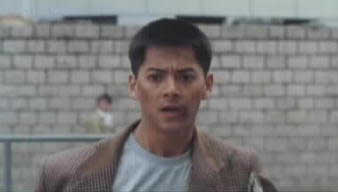
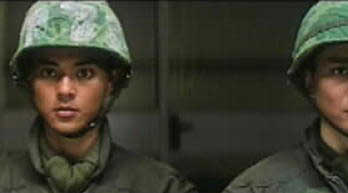

Born 01/09/66
May Lo was recently back in the news for giving birth to a baby girl much to the delight of her husband Jacky Cheung. She has been retired from the film business since the mid-90’s but for a few years she was fairly popular – and is someone I very much enjoy coming across in various films. She married Jacky in 1996.
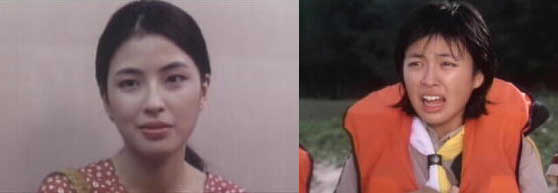

Meg has been in films from the mid-70’s right up to the present - Bald-Headed Betty (1975), Enter the Fat Dragon (1978 - works in the restaurant), Dirty Tiger, Crazy Frog (Sammo's girl), His Name is Nobody, Paper Marriage (1988), Hong Kong Gigolo (Simon Yam’s sister - 1990), A Queer Story (1997), It’s a Mad Mad Mad Kung Fu World (2000).


Melvin and his almost always-present mustache have been a part of HK films since the late 1970s as both bad and good guys. He always brings a nice professional touch to his roles. One of his very first films was Tsui Hark’s controversial We’re Going to Eat You in 1980. In the same year he appeared in the John Woo film from Rags to Riches. In 1985 he was the detective in the terrific Night Caller and then in 1986 he played the corrupt cop in Righting Wrongs.

Yves Gendron informs me of the following:
Melvin Wong is Canadian Chinese. He has some very impressive kung fu moves as he proves in the finale of Righting Wrongs and a short burst in Black Panthers. His expertise is in wing-chun and he got to play the grand master of the art himself Leung Chan in the movie Descendant of Wing Chun in the early eighties.
James Chang has this to add on the actor:
Before coming back to Hong Kong, Melvin obtained
his PharmD. degree from the University of California. He decided to become
an actor in order to pursue his present wife, who happened to be a prominent
leading lady in TVB. In the late 90s, he decided to drop the showbiz business
and pursued a law degree at the University of London, and obtained his
LLB there. He was called to the Hong Kong bar in 1997, and he is presently
a practicing barrister-at-law. (i.e. a litigation
counsel). His chamber is in Central.
This is one of the really legitimate tough guys in Hong Kong film. He didn’t learn how to look tough in a TVB acting class – but instead on the mean streets and rings of Hong Kong. Growing up in the New Territories he began studying martial arts at the age of ten but later turned to boxing and kickboxing - because in a real fight he realized these were more useful skills. He also utilized these skills in the ring and in 1972 he was the South-East Asian Kung Fu champion. Around this time he also became good friends with Bruce Lee. He readily admits that he was also a triad member and his body tatoos testify to this fact. He gained some notoriety when he faced down thirteen knife wielding gang members in a fight – and the story got into the papers. A producer saw him in a professional fight and asked him if he was interested in being in an action film - the offer was accepted – and so began his film career which has lasted over 25 years. Most of the time he plays a triad type – but on occasion he gets to switch sides. And on a few occasions he gets to show his lighter side as in Spy Games in which we get a chance to watch him sing “Happy Birthday Sweet Sixteen” with Kenny Bee.

For an interview between Bey Logan and Chan, click here.
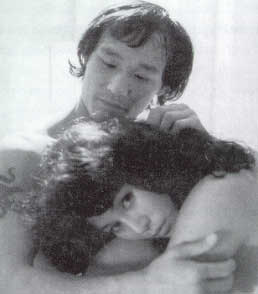
Chow has had an odd sort of career. In the late 80’s he was often cast as a bad guy in small roles – The Big Heat (one of the gang), Her Fatal Ways (the killer), Inspector Wears Skirts (the cad) – but in the early 90’s his comic persona began to show up in films - Cash on Delivery (a gigolo), Tom, Dick and Hairy (the male suitor referred to as Michelle in the English subtitles) and Bodyguard of the Last Governor. Then he was in a number of mid-budget films in which he was the hero – Mr. Mumble, Third Full Moon and Case of The Cold Fish.

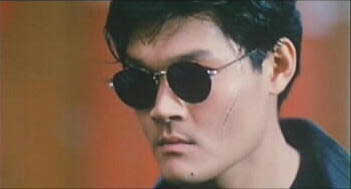
This fellow pops up in a number of films in very small roles - often it seems as an authority figure of some kind. He looks to be of Western or Indian descent and is always easy to pick out. Some of his appearances were in: Curry and Pepper (1990), Fight Back to School II, Girls Without Tomorrow (Vivian Chow's boss), Hard Boiled (the fellow killed in the library), License to Steal (police supervisor), A Kid from Tibet and The Tigers.

Born in 1942
Over the past thirty years, there have been three comedians who helped shape the style and content of the comedy of their decade. Stephen Chow and his mou-lei-tau comedy of the 90’s, Karl Maka and his outlandish antics in the 80s and Michael Hui and his deadpan cool humor of the 70s. Michael Hui was perhaps the most influential of the three – partly because he came first – partly because he brought HK comedy into the modern age – and thirdly because he was partly responsible for bringing back Cantonese as a cinematic language.




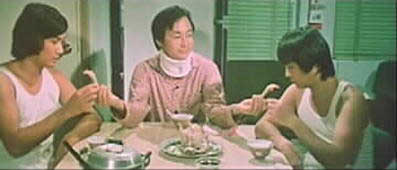
Yves Gendron sends in this interesting story on how Hui got started in show business:
Initially, Michael Hui wanted to become a politician and he studied social science as well as psychology at university. He needed money to pay for school fees though so he got a part-time job at a newly formed TV station as Quiz Master, interviewing people in the street. Quite by accident one night he wrote a small gag for a variety show, everybody liked it and so the director asked him to write more. After six months his gags were very popular and eventually the TV station asked him if he would be interested in doing a TV show not only as a writer but as an actor as well if he wanted so. And that’s how the Michael Hui show started.
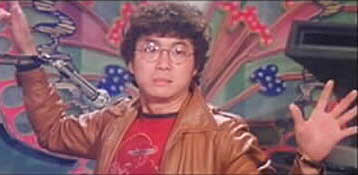
He has a very big role in Gordan Chan's 1995 film, Final Option, performing as a sadistic-minded-gun-loving playboy-turned-robber. Some other films that he has been in are Love and Sex of Eastern Hollywood (Athena Chu's boyfriend before she turns lesbian!), Ah Kam, Young and Dangerous IV, Casino, The Group and Magnificent Team.
(Info provided by Sebastian Tse)
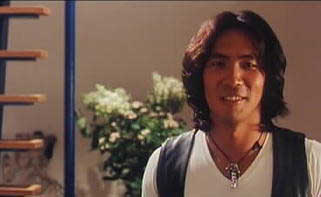
Born 11/17/69
Michael Tong launched his film and singing career in the same year, 1995. His music career didn't do very well. And although he is quite good looking, he was unable to make much of an impact till he joined TVB. In 1999, he made his first TVB series, Armed Reaction II which turned out to be a very popular series and gained him some exposure. His role as another policeman in Healing Hands II (2000) gained him even more fans. The exodus of some TVB's most popular actors in the late nineties have lead many to believe that he will be one of TVB's new generation of leading men.
Some of his films are Sexy and Dangerous (1996), Sexy and Dangerous II (1999), Purple Storm, Tempting Heart, Killers from Beijing.
(Write-up from Caroline Chai)

Though best known for his role as one of Ekin's boys in the Young and Dangerous series, Michael has certainly been in a number of other films. One has to wonder why after his terrific performance in The Blade (the opium-addicted killer) and the prominence of the Y&D series - along with his good looks, he has not gotten more roles as a leading man.

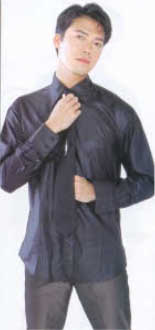
Is he man or wood? It is often difficult to tell and certainly his acting abilities have been questioned more often than President Clinton’s morals – but I have to jump to his defense. He may not be able to act his way out of a pair of boxer shorts – but you have to admit this guy has chutzpah. How many other men would have the nerve to go to Hong Kong who didn’t speak as well as read Chinese, could not act, was only half Chinese, didn’t have any particular martial arts skills and try to break into the film business? Not only did he try; he succeeded to an extent that I am sure he never expected himself. Even though Western audiences tend to roll their eyes when his name comes up, in Hong Kong and other places in Asia he has been extremely popular (he actually had some hit songs in Thailand!). And what I like about Wong is that I get the sense that he totally appreciates his good fortune – realizes that his acting comes up shorter than a munchkin in the Wizard of Oz – but is having himself a hell of a good time and will keep doing this as long as he can get away with it.

He was actually born in Shangdong, but his
family moved to the States when he was young and he never learned Chinese.
He was raised there, but in 1983 he came back to Hong Kong with his brothers
Russell and Declan, his good looks, his cigars and not much else going
for him. Declan can be seen in Once a Thief (the 1991 film).
Russell, who has some solid martial art skills,
made a few films in HK (The Musical Singer, China White, Porky’s Meatballs,
Satin Steel, Summer Lovers) but returned to the States where he had some
success in TV (The Vanishing Son) and in the recent Romeo Must Die.


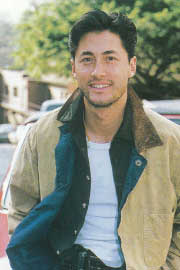
This black muscle man gained some fame for his face-offs with Donnie Yen in In the Line of Duty 4, Crystal Hunt, Tiger Cage I and II. His other Hong Kong films – Cheetah on Fire, Ballistic Kiss (both also starring Donnie Yen, but unfortunately the two don’t fight each other). His connection to Donnie Yen stems from the fact that he studied at the martial arts's school of Donnie's mother and later Donnie invited him to Hong Kong to participate in some films. Michael also appears in a German series called Puma that had a number of its episodes produced and directed by Donnie.
(Information provided by Ganesh Codandamoûrty)

|
|
|
|